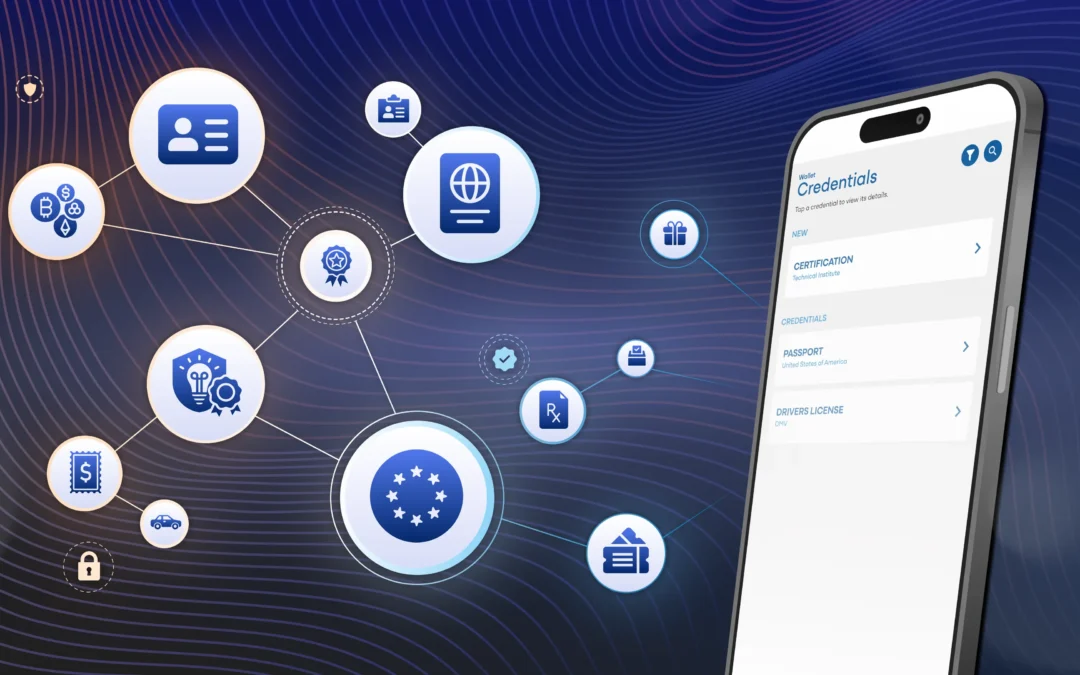The shift to digital identity is accelerating and 2026 will be a critical year for the security printing and paper businesses. Now is the time to prepare.
By Helen Garneau
For decades, trust has been printed. Passports, ID cards, certificates, and other official, government-issued, and securitized documents have been how people prove who they are. The European Digital Identity (EUDI) wallet signals the end of the era for exclusive use of paper and plastic-based identity.
The regulation, set to be mandated with new technologies rolled out within the next year, introduces a way for citizens, residents, and businesses to securely share digital identity data in the form of Verifiable Credentials across all EU member states; banking, travel, enterprises and government services are already piloting credential implementations.
As with many transformative technologies, change happens slowly and then very fast.
Companies that adapt quickly will stay relevant and leverage digital identity to deliver better products and services and innovate around seamless authentication and digital trust. Those that delay risk being left behind.
The question for companies in the secure document printing market is: how to not become obsolete when cryptography can make digital credentials every bit as trustworthy as the most secure physical document?
Just because the EUDI wallet framework architecture describes Verifiable Credentials, a digital identity technology that is interoperable, secure, and easy to use, the shift to digital identity doesn’t spell the end of physical documents.
Position for the great transition
The next few years will see a transition to verifiable digital identity and verifiable digital data and identity documents are the on-ramp. A key example: The International Civil Aviation Organization (ICAO) specifications for Digital Travel Credentials start with self-derived credentials (DTC-1), which means people are able to extract the data in the passport’s RFID chip then comparing the image in the chip with a real-time liveness check of the person scanning the passport and issuing a digital credential version of the passport. The passport can then be validated to confirm the data came from an official government source. They’ll still need their physical passport when they travel but it will only be for backup.
The next step will be governments directly issuing digital passport credentials (following DTC-2 specifications) along with a person’s physical passport. The person will still need this physical passport when they travel.
In both cases, the digital passport credential will do all the heavy lifting in terms of identity authentication that enables the passenger to seamlessly check-in, access a lounge, cross a border, pick up a rental car, and check into their hotel.
After these have been successfully implemented, we’ll move to a DTC-3 type credential — a fully digital passport where no physical back up is required.
Where are we in the transition process? Well, with Indicio Proven, governments are able to issue DTC-2 type credentials. Expect to see them soon.
Driver’s licenses, diplomas
It’s not just passports that are being digitalized. The same liveness check and face-mapping that happens with DTCs can be done with government-issued documents, such as driver’s licences and Optical Character Recognition can read the data in the absence of the RFID chip. More US states are adopting Mobile Driver’s Licenses (mdoc/mDL), while the European Union expects this standard to be implemented in Europe by 2030.
One bug in this rollout is that many mDL implementations don’t include the verification software businesses need to validate digital versions. These businesses still rely on physical driver’s licenses for customer identity authentication. If you want an mDL with simple, mobile, scalable verification Indicio Proven has you covered.
Diplomas, degrees, course transcripts and certificates are also being rendered as tamper-proof digital credentials through the Open Badges 3.0 specification. While their physical counterparts are not secured in the same way as government-issued identity, the Open Badges 3.0 standard makes these documents impossible to fake, binds them to their rightful holders, and renders them instantly verifiable.
The key to managing the transition to digital identity documents is to enable transition to these documents. And this is where Indicio Proven is unique in the marketplace.
Indicio Proven: your bridge from the physical to digital
Indicio Proven® gives printing companies a direct path into the digital era by transforming secure physical documents into Verifiable Credentials, the same technology outlined in the EUDI specification.
With Proven, your physical products become anchors, on-ramps, or companions to digital credentials. Passports can be turned into DTCs, and more than 15,000 types of identity documents from 250+ countries and territories can be credentialized. Driver’s licenses and other official documents can also be validated, bound with biometrics, and issued as tamper-proof digital Verifiable Credentials that are:
- Fraud-resistant and cryptographically secure
- Combine with biometrics and stored on individual’s own device
- Portable across borders
- Instantly verifiable without complex checks
Proven is a fast, simple, and cost-effective way to extend your role in the EUDI realm today that helps your customers:
- Save costs by reducing manual checks
- Protect against fraud with secure digital credentials
- Unlock new revenue by offering digital trust services alongside physical products
This technology also opens the door to offering new services in identity verification. When passports become Digital Passport Credentials and driver’s licenses become mobile driver’s licenses, organizations like financial institutions, airlines, and government agencies can verify and trust the information. Processes that were once inefficient and cumbersome—such as age verification, KYC, and cross-border travel—become seamless, premium services that create value and potential revenue streams every time they’re issued and verified.
The next chapter for printing and paper
Physical cards and certificates will not disappear overnight, but their primary value will shift. And that doesn’t mean paper-based industries are left out—your expertise in trust, security, and document integrity is more valuable than ever.
Proven makes this transition easy, enabling your business to grow as identity goes digital. With Indicio, you can carry that expertise into the digital age and position your company at the center of the EUDI wallet revolution.
The world is moving from paper to Proven. The opportunity is here—are you ready to take it?
Contact us today to get your complimentary EUDI digital identity strategy from one of our experts.
###






